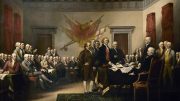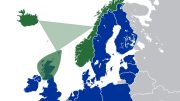Soon Britain will be going it alone on trade at a time of resurgent protectionism. A parliamentary committee has been told it is ill-equipped for the challenge of quickly finding export markets, Geoff Kitney reports.
A sobering picture of Britain’s prospects of achieving Theresa May’s post-Brexit ambition of remaking Britain as a great trading nation has been presented to a parliamentary committee by a panel of trade experts.
In a three-hour reality check, the panel warned that it was unrealistic to imagine that Britain could become a powerhouse of free trade capable of shifting the balance of power in trade diplomacy back towards trade liberalisation.
They also raised important questions about Britain’s ability to quickly replace the trade access it gets from its membership of the European single market with Britain’s own bespoke network of free trade agreements (FTAs).
Trade negotiation is a craft ….. It is learned by doing
This included a warning that hopes that the “Anglosphere” countries – the United States, Canada, Australia and New Zealand – will offer Britain an easy passage to free trade agreements to quickly fill the void after Brexit needed to be treated with caution.
“It is true that countries like Canada, Australia and New Zealand are giving Britain friendly messages,” Roderick Abbott of the European Centre for International Political Economy told the committee.
“But I say from my experience as a trade negotiator that friendly messages don’t amount to much in practice.”
Mr Abbott was joined on the panel by Dr Federico Ortino, from the Dickson Poon School of Law at King’s College, London, and Professor Jim Rollo from the UK Trade Policy Observatory at the University of Sussex. They were appearing on Tuesday before the House of Commons’ Select Committee on Exiting the European Union.
The picture that emerged from the questioning and the discussion that it evoked was that Britain, post-Brexit, which will be going it alone on trade at a time of resurgent protectionism, is ill-equipped for the challenge of quickly finding export markets on a scale to match the opportunities and the access that it currently enjoys through membership of the European single market.
As a European Union member, Britain has free trade access to 53 countries with which the EU has free trade agreements, and which give it a global network of trade flows (see below).
Interactive map of trade relationships between the UK and the rest of the world
Credit: Office of National Statistics
Unless it retains membership of the European customs union after leaving the EU, it will have to do its own agreements with these countries or find new partners. In response to questioning from the committee members suggesting that Britain as the world’s sixth largest economy with open and liberal trade policies could become a trade superpower with the capacity to shift the momentum of global trade policy back from protectionism towards free trade, the panel members warned against unrealistic expectations.
They pointed out that Britain as a trading entity was only one fifteenth the size of the EU as a whole.
It was unrealistic to imagine – as some committee members suggested – that Britain would be a force as a new, freshly sovereign trading nation at the World Trade Organisation, with the power to tip the balance of power at the WTO back towards trade liberalisation and, as a result, restore life to the long-stalled “Doha Round” of trade negotiations.
The panel of experts also warned that Britain, because of its lesser clout than the EU as a whole, might find itself regarded differently to the way it has been used to within the WTO.
One of the first challenges Britain faces after Brexit is to attempt to “copy and paste” the FTA’s form, which it benefits from as a member of the single market, onto new separate agreements with those countries.
But Professor Rollo said that the countries that have FTAs with the EU might be reluctant to give the UK similar access because it was a much smaller player.
Mr Abbott added: “From a trade point of view, Britain is much less interesting”.
The panel also painted a sobering picture of the task Britain faced in the immediate aftermath of Brexit.
Britain would be required first to obtain membership of the WTO and establish relationships with other WTO members.
It would then be able to begin formally negotiating its post-Brexit trade agreement with the EU, the number one priority for an FTA, as it accounts for 40 per cent of Britain’s total trade.
Only after that, would it be able to begin negotiating new FTAs with non-EU countries such as the ones in the Anglosphere.
But I say from my experience as a trade negotiator that friendly messages don’t amount to much in practice.
The panel said it was very hard to predict how these processes would impact on British business and the British economy, but there was certain to be some dislocation.
Professor Rollo said that Britain faces a major challenge to build the trade negotiating expertise to undertake all these tasks. He pointed out that the EU’s Directorate-General of Trade had more than 700 people involved in trade policy and negotiations and the Directorate-General of Agriculture had another 200 people involved in trade issues.
He said to build this sort of capacity and a pool of expertise took time. “Trade negotiation is a craft,” Professor Rollo said. “It is learned by doing.”
He pointed out that when China joined the World Trade Organisation in 2001 it had to work hard to build up trade negotiating expertise and had done so by consulting with a range of nations with long trade negotiating experience.
Professor Rollo suggested that the best way for Britain to build trade negotiation expertise “by doing” was to give priority to trade agreements with the countries now sending “friendly messages” such as Canada, Australia and New Zealand.
“This is a new game we are playing,” he said.
“They are pretty experienced at trade negotiations. We would learn a lot from them.”

UK trade relationship with the EU and Rest of the World
UK Imports, 2015




